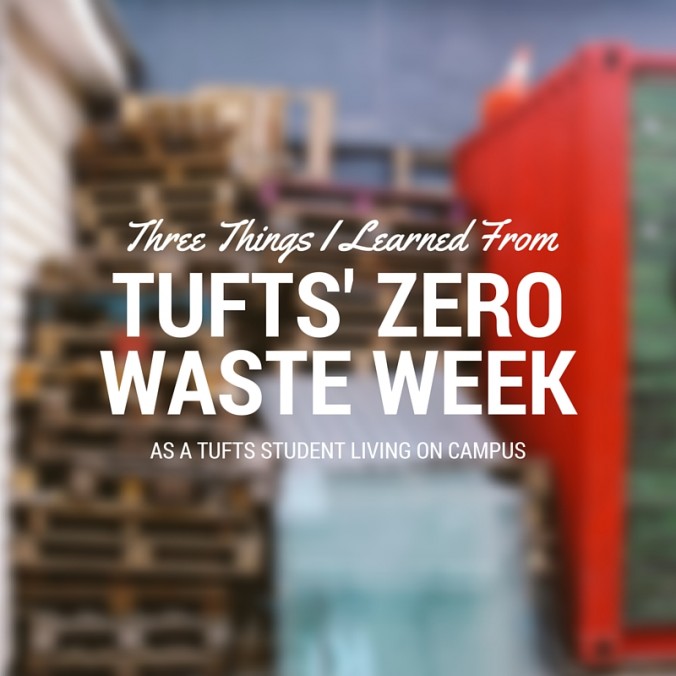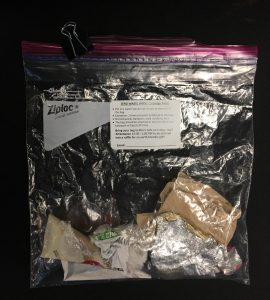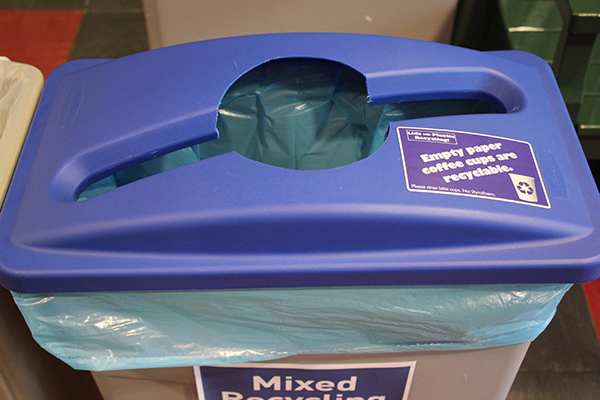The Zero Waste Challenge entails collecting everything that I don’t recycle or compost in a clear Ziploc bag that I clip to my backpack for a week. This was an eye opening experience and (literally) helped me see what type of and how much trash I produced. Here are a few takeaways from my experience!
1. Not all paper and plastic are recyclable…
Before my 8:30 AM class, I stop by Hotung Café to pick up their sausage and egg breakfast sandwich. The packaging is made out of waxed paper and plastic. At first glance, I thought I would simply separate the plastic and paper, recycle, and go on with my day.
However, waxed paper cannot be recycled because paper is recycled with water, so any type of wax or oil coating would contaminate the batch. (Check out this infographic that illustrates this process by the Recycle Guide!)
Soft plastics and plastic bags cannot be recycled either. I learned about the Scrunch test—if the plastic item can be scrunched easily into a ball or breaks apart easily, it can’t go into your recycling bin. Unfortunately, the breakfast sandwich packaging ended up becoming the first item in my Ziploc bag.
2. I Use So. Many. Paper Towels
Maybe it’s living with friends, maybe it’s being in college, but my house uses up a lot of paper towels. I’ve noticed that I use them for the smallest things—wiping down the table, picking up food waste in the sink, or even drying my hands after doing the dishes.
These paper towels were piling up in my Ziploc quickly, and I realized I need to make a change in my cleaning habits. I first started to use a small cloth towel to wipe my hands after the dishes, and designated another small towel for wiping down the table.
3. Easy to cook? Difficult to recycle!
As college students, we are probably all guilty of buying premade, or easy-to-cook food like mac and cheese, frozen hot pockets, and ramen. I’ve noticed that I couldn’t recycle any of this packaging. During the Zero Waste Challenge, I started to cook a lot of things from scratch.
Instead of buying individually packaged meals, I bought items in bulk. I got glass bottles of sauces and a big package of noodles, both of which will last a long time. As an added bonus, I noticed that this only adds a few more minutes to my cooking!









Find Us On Social Media!